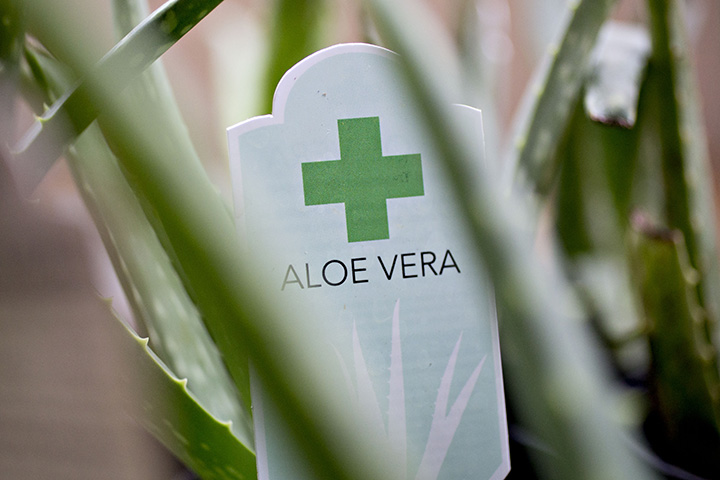Lab tests found no evidence that some aloe vera products sold at Walmart and other U.S. retail chains contain aloe vera, according to a new report.

Bloomberg news agency says it commissioned an independent lab in the U.S. to conduct tests on samples of store-branded aloe gel from popular retailers Walmart, Target, CVS and Walgreens.
According to the news agency, the lab results show Walmart’s Equate Aloe After Sun Gel with pure aloe vera; Target’s Up & Up Aloe Vera Gel with pure aloe vera; CVS Aftersun Aloe Vera Moisturizing Gel, did not contain evidence of the key ingredient of aloe vera even though the products list aloe barbadensis leaf juice (AKA aloe vera) as the number one or number two ingredient after water.
Global News has not independently tested these products.
Bloomberg said the three main chemical markers of aloe; acemannan, malic acid and glucose, were absent from the sample tests of the gels sold at CVS and Target. Walmart’s gel, which is sold in Canada, also had no traces of the three chemicals.
Walmart Canada did not respond to Global News when asked for comment on the Bloomberg report. A Walmart spokesperson in the U.S. told Fortune magazine the retailer stands behind its product.
- Posters promoting ‘Steal From Loblaws Day’ are circulating. How did we get here?
- Canadian food banks are on the brink: ‘This is not a sustainable situation’
- Solar eclipse eye damage: More than 160 cases reported in Ontario, Quebec
- 3 women diagnosed with HIV after ‘vampire facials’ at unlicensed U.S. spa
“We hold our suppliers to high standards and are committed to providing our customers the quality of products they expect,” the magazine quoted the Walmart rep as saying. “We contacted our suppliers and they stand behind the authenticity of their products.”
Citing stats from market researcher SPINS LLC, Bloomberg reported the aloe product market racked in over $145 million U.S. in 2016, an 11 per cent increase over the course of the year.
The lab tests showed a presence of an aloe imitator dubbed maltodextrin, a sugar often used in place of aloe, in the Walmart, CVS and Target sample tests, according to Bloomberg’s report.
However, Bloomberg noted that one of the four products, Walgreens’ Alcohol Free Aloe Vera Body Gel, contained one of the three key chemical markers of aloe and couldn’t confirm or rule out the presence of the plant.
A spokesperson for Walgreens Boots Alliance told Global News the retailer’s supplier “has assured us that the product’s ingredients match its labeling.”
“The quality, safety and integrity of our products is of highest priority to us, and we carefully select suppliers who share those priorities as well,” James W. Graham said in an email.
Citing pending litigation, Target spokesperson Erika Winkels declined to comment any further to Global News. The retailer is the subject of a class-action lawsuit filed in California claiming Target’s Up & Up Aloe Vera Gel contains no aloe. Target has denied the claims made in the lawsuit.
As the Consumerist points out, cosmetics sold in American retail stores do not need to be approved by U.S. Food & Drug Administration, and it’s on the suppliers to own up to what is labelled on their products.
“The law does not require cosmetic products and ingredients, other than color additives, to have FDA approval before they go on the market, but there are laws and regulations that apply to cosmetics on the market in interstate commerce,” reads a message on the FDA website.
Texas-based Fruit of the Earth, the maker of Walmart, Target and Walgreens’ aloe gel, disputed Bloomberg’s findings.
“We’ve been in the business a long time and we know where the raw ingredients come from,’’ John Dondrea told Bloomberg. “We stand behind our products.’’
Fruit of the Earth’s aloe supplier Concentrated Aloe Corp., based in Florida, said the test results are unreliable because of the presence of multiple ingredients interferes with the results.
“Acemannan has been misinterpreted,” Meadows told Bloomberg. “The cosmetics industry requires highly processed aloe. How that affects acemannan is anybody’s guess.’’
CVS did not respond to Global News’ request for comment on its product.





Comments